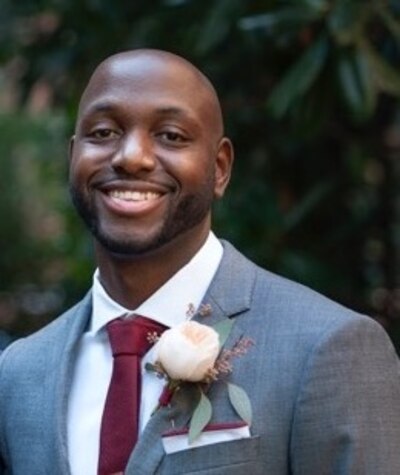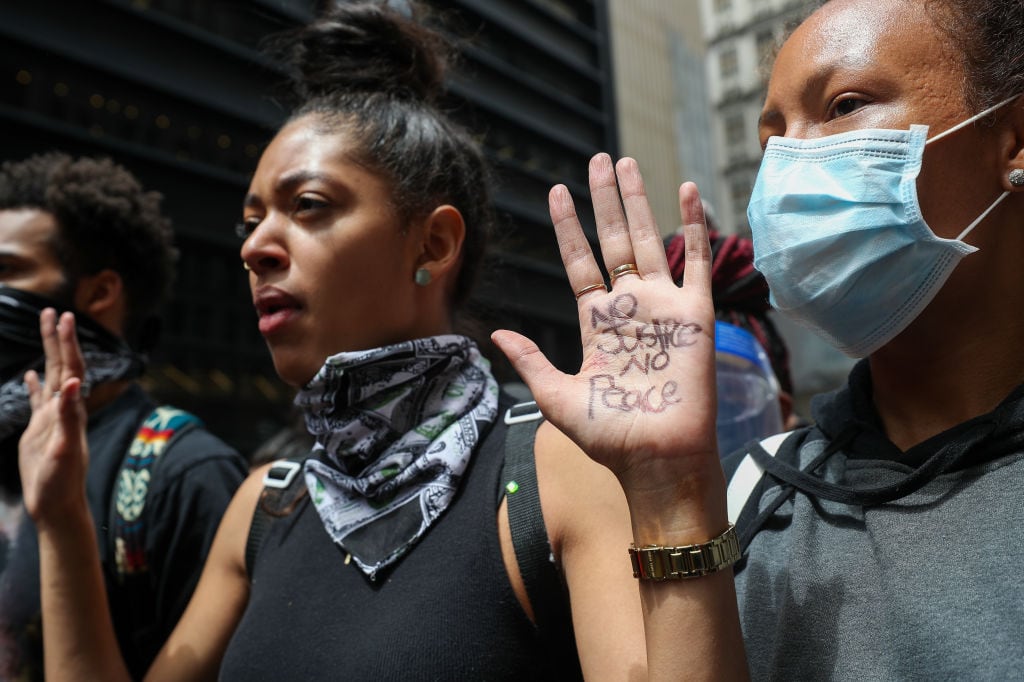As a man of color, I’ve dealt with America’s racial inequalities my entire life. I remember my father sitting me down at the age of 12 to have the “what to do if the police pull you over” conversation. My dad described the fear I would evoke in white people while I was shopping; and he explained that my family had no choice but to live in Brownsville, Brooklyn, due to the redlining that kept many families of color from obtaining a mortgage. This conversation shaped my view of the world around me, but it also manifested in anger, sadness, and emotional trauma that, for a very long time, I was unable to articulate.

This week, as protests raged over the brutal police killing of George Floyd, I had the opportunity to support young people who identify with my struggles in this country. It all started three days earlier, with a conversation I had with one of my 12th grade students, a future POSSE scholar and first-generation college student. I am a high school counselor, and she told me that she was feeling the normal anxieties of a graduating senior, and worried about leaving behind the comfort of her family and community in pursuit of higher education. The senseless killing of George Floyd, after a Minneapolis police officer leaned on his neck for nearly nine minutes, intensified her apprehension of attending a Predominantly White Institution as a woman of color.
“Will I be responsible for changing the minds of these people?” she asked. “How will I handle microaggressions? Will I be safe?” Her words broke my heart. I wondered how many of my current and former students felt exactly the same way.
So I asked my school community for help creating and facilitating a virtual discussion panel to serve as a source of comfort for our students who were feeling helpless and alone. Our students needed the opportunity to voice their thoughts, concerns, and emotions in a safe space. While social media makes the world more accessible, absorbing an inordinate amount of violent images and discord without a meaningful way to respond can be damaging to our youth. Positive outlets, where young people can be seen and heard, are vital to the development of any child.
Guiding questions, such as “What are your thoughts and feelings around the police’s response to protests?” and “What do you want to say about what is happening at this moment?” reminded our students that their voices are valued and that we are still listening, albeit at a distance due to COVID-19.
When putting together the panel, we wanted to represent a multitude of perspectives and were fortunate enough to have our principal, one of our high school history teachers, an alumna who works in our local justice system, and a student protester on hand to discuss how they were feeling and what they could do to effect change. The panelists wholeheartedly answered questions ranging from “How does one become an activist?” to “How do we have productive conversations with those who may differ in opinion from us?”
During the event, which I moderated, students were able to post questions and thoughts in the chat box. In our wide-ranging discussion, panelists and students shared their ideas about violent and non-violent efforts to make change, and they discussed cultural similarities between the Dominican American and African American communities. When students questioned their ability to make a difference, we reviewed former President Barack Obama’s recent Medium essay about young people’s power to bring about a more just world. It is our duty as educators to remind our students of their power, even when they don’t see it for themselves.
The panel, which brought together upwards of 85 students, alumni, and faculty, implored young people to continue learning — reading books and articles, watching documentaries, listening to podcasts, and having hard conversations with others. Panelists also urged students to speak out against bigotry, to vote, to donate to causes that support their vision, and, above all, to listen. Understanding starts with listening. Agreeing, or agreeing to disagree, is better than disagreeing without engaging.
And we emphasized the importance of self-care, especially in stressful times. We encouraged students to stay grounded by checking in with staff and advisors, spending time with family and friends safely, taking social media breaks, meditating, doing yoga, and even taking care of a plant. Although the coronavirus has forced physical distancing, we reminded them that we educators have and will always be there for them. Lastly, students were given access to resources about police brutality and systemic racism.
We created this forum with the intention of teaching students the value of active listening and showing them that understanding of race is not finite. I explained that it is impossible to go through life without offending anyone. As a Black male, my experiences are not necessarily representative of what every Black man goes through. What one person finds innocuous, another might consider offensive. Which is why speaking one’s truth and listening to each other is the first step to building a better world.
And for the first time in a while, it feels like change is going to come.
Randy Bowen is a high school counselor with the New York City Department of Education at Community Health Academy of the Heights in Manhattan. He is a native New Yorker.








